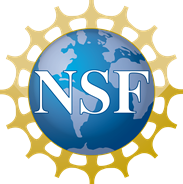
November 26 - December 1, 2023
Boston, Massachusetts
Symposium Supporters
2023 MRS Fall Meeting & Exhibit
Symposium EL20-Future Materials and Technologies Toward Sustainable Heterogeneous Computing and Energy-efficient Machine Learning
New computing techniques, supported by emerging materials and devices, are changing the way information is processed. Innovations in operating speed, functional density, and power draw are progressing rapidly. Highly energy efficient intelligence to distributed sensors, imperceptible wearables and transient electronics would enable a fully connected world beyond the current IoT vision. However, this requires concerted advances at every level, from low thermal budget materials with competitive performance and interface engineering to modelling and system design. This symposium will address the multifaceted progress toward these goals via advances in materials, processes, simulation tools, devices, and systems. Discussion of fundamental material science; synthesis, growth mechanisms, fabrication routes and methods to improve important properties are encouraged.
The translation to large scale manufacturing brings additional challenges: cost-effective scale-up, reliability, uniformity and yield rely simultaneously on process control, fundamental material considerations and judicious device engineering. Successful integration with mature technologies continues to be a priority. Key is facilitating a rapid transition from basic science to practical deployment across the broad range of emerging applications including IoT and edge computing. To this end, solutions that cross traditional boundaries are being sought.
A third, strongly budding element is the focus on sustainability for electronic devices and systems, both in the ecological and economical dimensions. Complementing the efforts to reduce e-waste and the reliance on harmful products, such advances are increasingly favoured. Contributions are encouraged on ecological materials and on techniques with reduced manufacturing energy.
The translation to large scale manufacturing brings additional challenges: cost-effective scale-up, reliability, uniformity and yield rely simultaneously on process control, fundamental material considerations and judicious device engineering. Successful integration with mature technologies continues to be a priority. Key is facilitating a rapid transition from basic science to practical deployment across the broad range of emerging applications including IoT and edge computing. To this end, solutions that cross traditional boundaries are being sought.
A third, strongly budding element is the focus on sustainability for electronic devices and systems, both in the ecological and economical dimensions. Complementing the efforts to reduce e-waste and the reliance on harmful products, such advances are increasingly favoured. Contributions are encouraged on ecological materials and on techniques with reduced manufacturing energy.
Topics will include:
- Physics, modeling and technology of memristive nanomaterials and devices
- Advances in devices that emulate the synaptic or neuron functionality
- Emerging materials (organic, inorganic, ferroelectric, spintronic, phase-change) for neuromorphic devices
- Emerging computational primitives for neuromorphic engineering
- Materials and devices for in-sensor computing
- Integration and interfacing with mature commercial technologies e.g. back-end integration with CMOS
- Sustainable and energy-efficient approaches to functional materials and device/system fabrication
- Manufacturability, reliability and yield, in particular advances in materials and processes
Invited Speakers:
- Elisabetta Chicca (University of Groningen, Netherlands)
- Elliot Fuller (Sandia National Laboratories, USA)
- Dimitra Georgiadou (University of Southampton, United Kingdom)
- Julie Grollier (CNRS/Thales, France)
- Daniele Ielmini (Politecnico di Milano, Italy)
- Duygu Kuzum (University of California, San Diego, USA)
- Mario Lanza (King Abdullah University of Science and Technology, Saudi Arabia)
- Adnan Mehonic (University College London, United Kingdom)
- Gianluca Milano (Istituto Nazionale di Ricerca Metrologica, Italy)
- Enrique Miranda (Universitat Autònoma de Barcelona, Spain)
- Gang Niu (Xi’an Jiaotong University, China)
- Beatriz Noheda (University of Groningen, Netherlands)
- Kaushik Roy (Purdue University, USA)
- Yulia Sandamirskaya (Ruhr-Universität Bochum, Germany)
- Heidemarie Schmidt (Friedrich-Schiller-Universität Jena, Germany)
- Sabina Spiga (Institute for Microelectronics and Microsystems, Italy)
- Dmitri Strukov (University of California, Santa Barbara, USA)
- Kazuya Terabe (National Institute for Materials Science, Japan)
- Hsinyu (Sidney) Tsai (IBM T.J. Watson Research Center, USA)
- Rainer Waser (Forschungszentrum Jülich GmbH, Germany)
- Christian Wenger (Leibniz Institute for High Performance Microelectronics, Germany)
- Joshua Yang (University of Southern California, USA)
- Yuchao Yang (Peking University, China)
- Martin Ziegler (Technische Universität Ilmenau, Germany)
Symposium Organizers
Radu Sporea
University of Surrey
United Kingdom
Gina Adam
George Washington University
USA
Yiyang Li
University of Michigan
Materials Science & Engineering
USA
Sayani Majumdar
Tampere University
Finland
Topics
electrical properties




-2.tmb-mtg_rel_ad.png?Culture=en&sfvrsn=a4240c09_1)

























